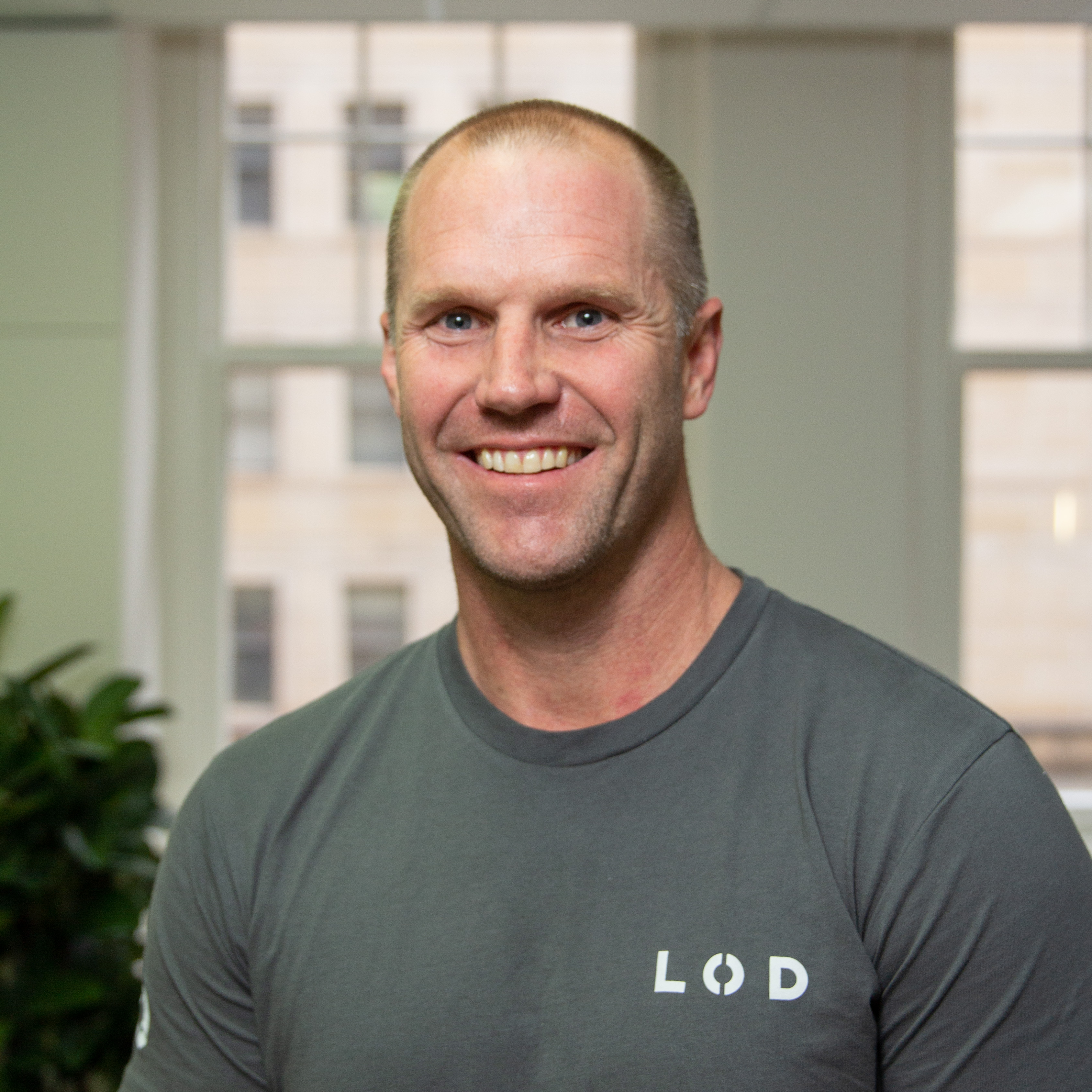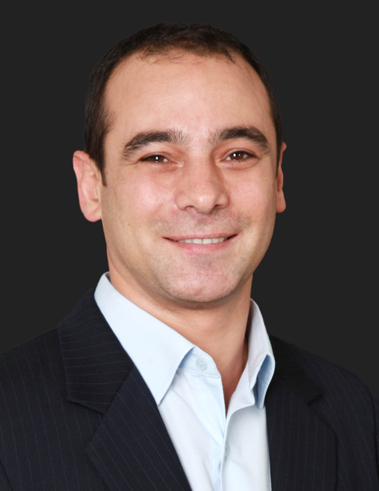 We speak with Anthony Wright about his story, the development of lexvoco, joining forces with LOD, the rise of legal operations and the future of legal in Asia.
We speak with Anthony Wright about his story, the development of lexvoco, joining forces with LOD, the rise of legal operations and the future of legal in Asia.
 How did you become interested in legal innovation?
How did you become interested in legal innovation?
Since working at McDonald’s – my first job as a 13-year-old boxing fries – I’ve been fixated on processes and systems. More specifically, how processes and systems can be continuously improved for the benefit of customers, staff and other stakeholders. This might sound glib, but it’s been a genuine fascination of mine!
After moving past the Golden Arches, I became a lawyer and…well nothing really changed. I’m always interested, intrigued and thinking about “why” – why do we do it this way, why do clients get frustrated with their lawyers too often, why do lawyers complain too often about their jobs, why is this taking so long, why do I have to read this three times and I still don’t understand it.
Innovation often comes from someone (or, more often a team) relentlessly pursuing the question of “why”. And as someone preoccupied by “why”, innovation is something that has flowed naturally. After all, if you just accept the status quo, innovation will never happen.
What’s the lexvoco origin story?
I love being a lawyer but not in the “normal” way – working in a firm or corporate 5-7 days per week churning through the same things where success is too often measured on how many hours worked. That sucks for everything else in life outside work. I also always wanted to start something myself and “be my own boss”.
In my early 30s, after many discussions and whinging to my wife about work, I decided to do something. And if I was ever going to start something myself, it was logical and least risky doing it in law. So, I assume like every law firm that has ever started, it started with one lawyer reviewing a contract and providing some advice. It went from there.
In many ways, a legal business is no different than any other business – selling products or services to the market. You need a clear purpose, you need to mean something to your team and customers, you need to do it “better” than most of the others for your target audience, and you need to go hard.
What were some of your greatest successes at lexvoco?
I’ve been asked this question a few times. It would be natural to refer to client work and achievements; but that’s not how I judged our success. Our greatest success was developing a culture where, for the most part, our team loved being there and cared a lot about each other and our clients. Like all teams, we went through hard times and we had our disagreements but that’s life and that’s relationships. We all trusted, admired and respected one another and we created a great environment for our team who are then able to help our clients.
I also viewed success more broadly than “we delivered a piece of legal advice to customer XYZ”. At its widest, we judged success from improving the well-being of lawyers in organisations. How did we save them time, how did we simplify the process, how did we help elevate their standing in the company, how did we help them go home earlier and work less?
What led you to join forces with LOD?
There were really three key reasons:
- It gave us the ability to take our legal operations and legal tech thinking and solutions globally. Getting the operational scale of LOD means we can rapidly scale our efforts beyond ANZ, with a strategic focus on Asia.
- I’d got to know some of LOD’s key people over the years and we shared the same values and thinking. They were great people, easy to get along with. Culturally, it was a clear fit.
- From a personal standpoint, I felt like I could continue to learn a lot and grow within the LOD team.
_______________________
 Oliver Mould, the head of Asia for LOD, offers his perspective on the exciting addition of lexvoco to the team:
Oliver Mould, the head of Asia for LOD, offers his perspective on the exciting addition of lexvoco to the team:
‘The experience and understanding of legal operations and best practice that Anthony and the lexvoco team bring with them complement LOD’s platform in Asia perfectly. We’re already working closely together to combine their solutions with the people we employ in the region.’
_______________________
How would you describe the current legal technology scene in Asia?
Cluttered. I read and hear a lot about what people are doing with tech, globally. There’s a lot of noise and a lot of information, which is very difficult to absorb and focus on what’s genuinely useful. This makes it difficult for our clients and our team to find the best tech.
Our clients are typically corporates and government who, for the most part, already have sophisticated IT systems (eg. Google, Microsoft, SAP etc) and developers. Yet, I am always surprised, especially by some of the largest organisations, at the low to non-existent level of tech used by our clients. Their organisations have already purchased the systems and tools but the legal team has very little idea about them, let alone have been trained to use them effectively and have them slightly customised to suit the needs of legal. This seems like a real waste, in a time where companies are desperate to reduce waste.
Our philosophy at LOD is for our clients to deeply understand and exhaust what they already have – use for a year – and then if there are still areas for improvement that aren’t being solved with the current systems, consider buying bespoke legal tech.
Looking forward now, what does the future hold for in-house legal teams?
I’m forever an optimist so I think the future is bright for lawyers. But … only if we’re able to adapt our skills to genuinely keep abreast of what clients care about and are prepared to pay for. For in-house legal teams, I think they will still need to maintain their core legal skills and capabilities but 50% of their skills will need to be in other “STEM” disciplines or commerce where the “general counsel” is just that – a person who has various “general” business advisory skills (including law but not only law). A person who can provide trusted counsel to their colleagues about how and what to do and how to avoid making poor decisions.
People have been talking about the different skillsets of lawyers for a while now – the idea you are a deep expert in law, but also have a broad range of other commercial skills. More recently, the conversation has moved on to a more sophisticated view: the Delta Shaped Lawyer. The idea of a lawyer’s competence that includes your “legal knowledge”, “process, data and technology” and “personal effectiveness skills”; working as three constituent elements of the whole.
This concept resonates with our philosophy of approaching legal work and how we see the future. Yes, you will need your legal knowledge – that’s a given – but this will need to be complemented by a firm understanding of processes and personal effectiveness skills.
What are your underpinning philosophies in approaching legal work?
I believe in seven broad principles:
- First and foremost, know the law and its practical application to your organisation.
- Listen more than you talk.
- Write and say less. There is too much information floating around without lawyers adding to it.
- Know, deeply, how your organisation operates and makes money (assuming it is a profit-making enterprise) – know its purpose and how it delivers on that. Know what the organisation’s goals are.
- Know, deeply, what your top handful of key internal clients care about – what they like, what they don’t like, what frustrates them, how they communicate, what volume of information they require to do their jobs. Know what their goals are.
- Continue to learn more about commerce, strategy, efficiency, effectiveness, leadership and tech.
- Know what resources and capabilities your organisation already has before looking to buy “solutions” from elsewhere.
How do you ensure you’re building real solutions with pragmatic outcomes?
Similar to the above plus applying a combination of Lean and Design Thinking theories. Starting with deeply understanding, from the customers or the user’s perspective, what they think (the good, the bad and the ugly), want and need. Understand what their issues and areas for improvement are. Analyse the root cause of those problems. Develop ideas/solutions. Test them, ensure people can make the processes and procedures work before contemplating building them into a system.
A good example of building pragmatic solutions, I think, is our development of LOD365 – designing and building matter, document and knowledge management systems all within Microsoft apps, plus automation, workflow management, chat bots and reporting – still all in Microsoft apps that most organisations have already purchased.
Finally, what excites you about the opportunities in Asia?
Legal teams all over the world have exactly the same challenges. In fact, the larger economies with the larger legal teams probably have got it harder to successfully implement transformational change. This excites me because we’re able to help our clients solve these problems and execute solutions.
_______________________
Oliver Mould, the head of Asia for LOD, offers his perspective on the future in Asia:
‘While legal operations as a specialist function is very much in its infancy in Asia, the legal leaders we are working with are certainly becoming better acquainted with the philosophies behind legal operations and, as managers of typically lean functions, are personally taking on more responsibility for legal operations in the region’.
Email: oliver.mould@lodlaw.com








 Oliver Mould
Oliver Mould




